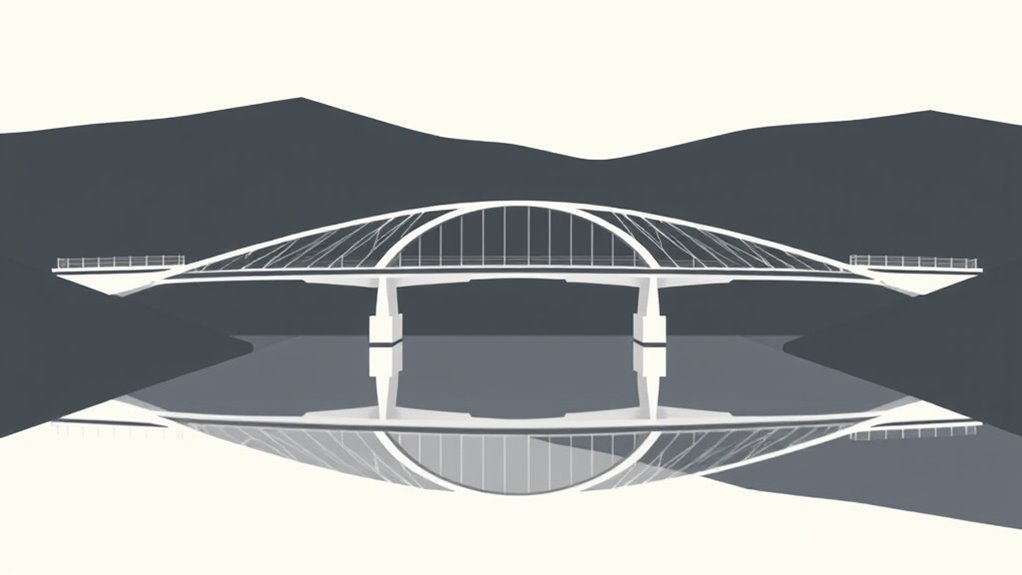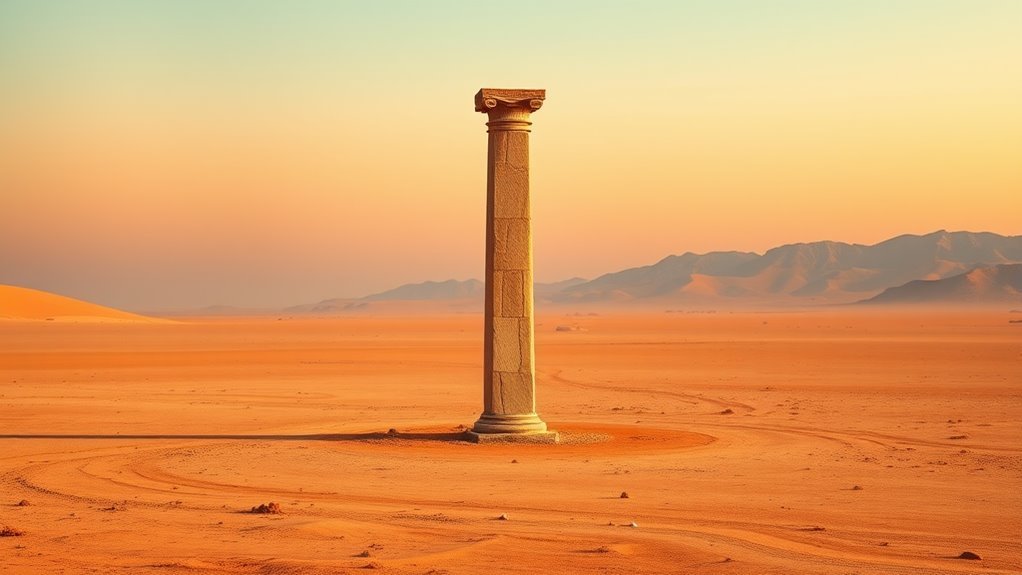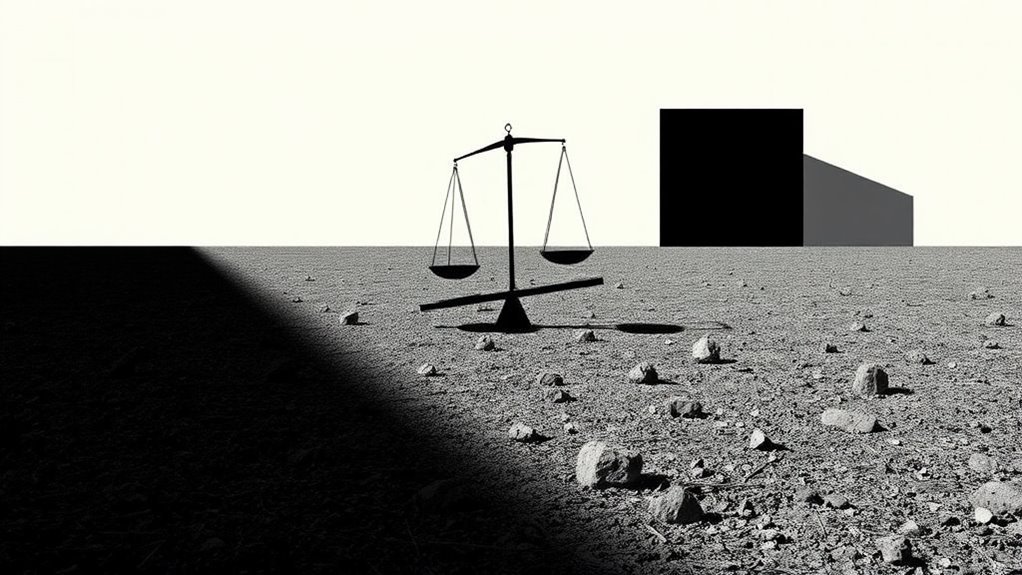Dictatorships can be like a double-edged sword. On one hand, they can make fast decisions and get things done without all the hassle of debates. Think about how some countries built impressive railways or transformed cities quickly! Nevertheless, this comes at a cost. Personal freedoms often take a hit, and dissenting voices can be silenced. Plus, history shows that economic stability can vanish when power shifts. Want to hear more about the wild ride of dictatorships?
Main Points
- Dictatorships can enable rapid decision-making and crisis response, allowing for swift actions during emergencies without bureaucratic delays.
- Centralized governance provides political stability and consistent policy implementation, fostering a predictable environment for investors and long-term economic growth.
- Efficient resource allocation in dictatorships can lead to impressive infrastructure development and economic growth, as seen in countries like China and Singapore.
- Human rights abuses and suppression of freedom of expression are common in dictatorships, creating a culture of fear and silencing dissenting voices.
- Economic instability can arise from sudden policy shifts and mismanagement during transitions from dictatorship to democracy, leading to social unrest.
Is Stability Worth Personal Freedom?
When it comes to the delicate dance between stability and personal freedom, it often feels like a high-stakes game of tug-of-war.
On one side, dictatorships can bring a level of stability that helps economies grow fast, like in China. Nevertheless, this often comes at a price. Citizens face restrictions on their civil liberties, with political opposition silenced under tight control.
Countries like North Korea show just how quickly human rights abuses can pile up when freedom is sacrificed for order. The question remains: is stability worth the loss of personal freedom?
Many believe that true progress happens when people can express themselves without fear, blending good governance with the protection of individual rights. It’s a tricky balance, but an essential one.
Pro #1. Efficient Decision-Making Processes
In many ways, the efficient decision-making processes found in dictatorships can seem like a well-oiled machine, chugging along without the hiccups that often plague democracies.
With a concentration of power, decisions can be made swiftly, allowing leaders to tackle urgent issues without the endless debates that slow things down. This centralized decision-making leads to coherent policy direction, ensuring that everyone is on the same page—no need for messy compromises!
Just think of the rapid industrialization seen in the Soviet Union under Stalin; it’s a prime example of how quick resource allocation can drive substantial growth.
In times of crisis, dictatorships can effectively mobilize resources to priority areas, addressing national needs faster than a slow-moving democratic process could ever dream of.
Con #1. Lack of Political Pluralism
Political pluralism, or the presence of multiple political parties and viewpoints, is often nothing more than a distant dream in dictatorships.
In such regimes, the lack of political pluralism means that one leader or party holds all the power, silencing any opposition. This creates a culture of fear, where citizens think twice before sharing their opinions, fearing persecution or worse.
Censorship plays a huge role, as information is tightly controlled, leaving little room for discussion or debate. Without competitive elections, political participation drops, making people feel their voices don’t matter.
Essentially, authoritarianism thrives on this lack of diversity, stifling any chance for meaningful engagement or change. It’s like a one-man show that no one wanted to attend!
Pro #2. Rapid Infrastructure Development

Many dictatorships are known for their impressive feats of rapid infrastructure development, and it’s not hard to see why. With centralized decision-making, these authoritarian regimes can quickly allocate state funds to projects that boost public support and drive economic growth.
Take China, for example; their high-speed rail systems stretch over 38,000 kilometers, connecting cities like a well-oiled machine. Similarly, the United Arab Emirates has transformed Dubai into a futuristic metropolis, thanks to heavy investment in infrastructure.
In Ethiopia, the Grand Ethiopian Renaissance Dam project aims to power the nation while showcasing the government’s ambitious plans. This ability to mobilize resources and respond swiftly to needs, like rebuilding after disasters, highlights how effective rapid infrastructure development can be under such regimes.
Con #2. No Checks on Government Power
While rapid infrastructure development showcases the strengths of dictatorships, there’s a darker side lurking in the shadows—no checks on government power.
In these regimes, absolute power is concentrated in the hands of one leader or ruling group, leaving citizens vulnerable. With unchecked executive authority, dictators can make arbitrary decisions without accountability. They often manipulate or suppress opposition parties, turning dissent into a ghost town.
This lack of transparency breeds corruption, as leaders escape responsibility for their actions. Human rights abuses thrive in this environment, where fear reigns and oversight is non-existent.
Without a robust system of checks and balances, the potential for tyranny grows, making it a slippery slope for those living under such regimes.
Pro #3. Government Resources Efficiently Allocated
Dictatorships can sometimes be like a well-oiled machine when it comes to using government resources. With centralized decision-making, these regimes can allocate funds swiftly, responding rapidly to crises without the usual democratic delays. This efficiency often leads to impressive infrastructure developments, allowing for long-term plans without the hiccups of elections.
Here’s a quick look at how this plays out:
| Aspect | Dictatorships | Democracies |
|---|---|---|
| Decision-Making Speed | Rapid | Slower due to consensus |
| Resource Allocation | Efficient | Bureaucratic delays |
| Infrastructure Growth | High | Variable |
| Crisis Management | Effective | Often reactive |
| Long-Term Planning | Consistent | Interrupted by elections |
Historical examples, like the Soviet Union’s industrialization under Stalin, showcase how single-minded focus can lead to successes in resource allocation.
Con #3. Limited Freedom of Expression

How can a society thrive when its citizens are afraid to speak their minds? In dictatorships, freedom of expression is heavily restricted. Censorship reigns, silencing media and opposition voices to keep the public in line.
Instead of sharing ideas, people are bombarded with propaganda, reinforcing only the government’s narrative. Dissent? Forget about it! Those who dare to voice opposition often face severe punishment, like imprisonment or worse.
This creates a climate of fear, making open dialogue nearly impossible. Without an independent press, there’s minimal accountability or transparency in government actions.
History shows us, with places like North Korea and China, just how extreme these measures can get. In such environments, true progress and innovation are stifled, leaving society stagnant.
Pro #4. Centralized Economic Planning
In the world of economics, centralized planning can feel a bit like a game of chess, where a few players make all the moves, hoping to lead their pieces to victory. Dictatorships often embrace centralized economic planning, quickly allocating resources to fuel economic development and infrastructure projects. Nevertheless, the lack of market signals can create inefficiencies, leading to misallocation of resources.
| Pros | Cons |
|---|---|
| Swift resource allocation | Inefficiencies |
| Rapid job creation | Corruption |
| Focus on key sectors | Misalignment with market demand |
| Accelerated industrialization | Economic stagnation |
While these centralized efforts can drive growth, political agendas may overshadow market needs, limiting total economic progress. This delicate balance makes centralized planning a double-edged sword.
Con #4. Military Influence on Governance
When a country’s military steps into the political arena, things can get pretty intense, and not always in a good way. Military influence often leads to the rise of authoritarian regimes, where a handful of military leaders hold all the power.
They usually suspend civil liberties, putting national security above everything else. Just look at countries like Myanmar and Egypt, where military coups stomped on democratic processes. This creates a culture of fear; people are scared to speak out, fearing imprisonment or worse.
Historical examples, like Argentina’s Dirty War, show how military governments can carry out serious human rights abuses, including torture and forced disappearances.
In short, military influence can turn a nation into a place where freedom is just a distant memory.
Pro #5. Streamlined Policy Implementation

After examining the heavy hand of military influence on governance, it’s time to contemplate another angle of dictatorships: their knack for getting things done quickly.
In these regimes, streamlined policy implementation shines as a major benefit. With centralized authority, leaders can make decisions and allocate government resources without the delays of lengthy debates. This means rapid implementation of necessary policies, especially in times of crisis.
Imagine ambitious reforms, like new roads or health initiatives, being launched without the bureaucratic red tape that often slows things down in democracies. In a dictatorship, when national security or disaster strikes, leaders can bypass standard procedures.
This efficiency can lead to real advancements, making the most of every opportunity for improvement.
Con #5. Frequent Changes in Legislation
Frequent changes in legislation can feel like a game of whack-a-mole in dictatorships, where one law gets hammered down only for another to pop up in its place.
These rapid shifts often serve to suppress dissent, as leaders swiftly enact new laws that curtail freedoms like speech and assembly.
With a lack of checks and balances, the legal environment becomes unpredictable, creating instability for citizens and businesses alike.
One day, a law might encourage economic growth, and the next, it could restrict basic rights.
This inconsistency reflects the dictator’s changing priorities or needs to appease different groups within their inner circle.
In the end, the constant churn of legislation leaves everyone guessing, and that’s not a fun game to play.
Pro #6. Swift Crisis Response
In times of crisis, having a leader who can make quick decisions can be a real game changer. Authoritarian regimes, with their centralized power, can respond swiftly when disaster strikes.
This means faster resource allocation during emergencies, whether it’s a natural disaster or a public health scare. Take the 2003 SARS outbreak in China, for example. The government quickly enforced strict public health measures, helping to control the situation.
Unlike slower democratic processes, these regimes can bypass bureaucratic red tape in crisis management. They also keep the population calm, preventing panic during tough times, as seen during the COVID-19 pandemic.
In short, when every second counts, a dictatorship can often deliver a swift response that saves lives.
Con #6. Limited Political Discourse Allowed

While swift crisis response can be a major advantage of dictatorships, it often comes at a steep price: limited political discourse.
In these regimes, dissenting voices are frequently silenced through censorship, intimidation, or imprisonment. The media is tightly controlled, meaning only state-approved narratives get out, leaving citizens with little access to diverse opinions or critical discussions.
Political participation feels like a distant dream since expressing opposition can lead to severe consequences. Even when elections happen, they’re often rigged to keep the dictator in power.
Without proper checks and balances, political pluralism suffers, and alternative viewpoints are stifled. Fundamentally, the lack of open dialogue creates a culture of fear, where free thought is overshadowed by oppression.
Pro #7. Unified National Direction
When a single leader or ruling party takes charge, it can create a clear and unified national direction that many democratic systems struggle to achieve.
This centralization means decision-making authority is streamlined, reducing the chaos of conflicting agendas. As a result, policy implementation becomes coherent and efficient, laying the groundwork for rapid advancements in national initiatives.
Dictatorships can swiftly mobilize resources towards strategic goals, whether it’s building roads or reforming the economy, without legislative delays. This decisive action helps maintain social order, as the government can quickly tackle crises or dissent.
Historical examples, like Lee Kuan Yew’s economic reforms in Singapore, showcase how a unified national direction can lead to impressive economic growth and development.
Con #7. Military Control Over Governance
Military control over governance can often feel like a dramatic plot twist in the story of a nation. Think of it as a high-stakes game of power, where military leaders form a junta and call the shots.
While some argue this brings quick stability—like temporarily reducing crime—it’s important to note that such regimes often crush civil liberties and human rights. Citizens may find themselves facing severe consequences for simply voicing dissent or opposing the regime, leading to a chilling atmosphere.
The political opposition stands no chance, as competing parties are swiftly outlawed, creating a one-sided narrative. Historical examples, like Argentina and Chile, show how military control can preserve order but often at a heavy cost to individual freedoms and democratic ideals.
Pro #8. Consistent Policy Continuity

In a world where change is the only constant, dictatorships can offer an intriguing twist by providing a sense of policy stability that many democracies struggle to achieve.
These regimes often guarantee consistent policy continuity, allowing leaders to roll out long-term economic initiatives without the interruptions caused by political turnover.
Take China, for example; its steady economic development strategy has led to impressive growth over decades.
With fewer bureaucratic delays, major infrastructure projects can be completed faster, leading to better roads, schools, and hospitals.
This uninterrupted focus means that key areas like education and healthcare can thrive, creating a predictable environment for both local and foreign investors.
In short, the stability found in authoritarian regimes can drive impressive results.
Con #8. Frequent Policy Reversals Occur
Although dictatorships may seem like a recipe for stable governance, they often serve up a side dish of frequent policy reversals that can leave citizens scratching their heads. With absolute power, a dictator can change policies without consulting anyone, creating instability in governance. When crises hit, they might implement drastic changes on a whim, leading to inconsistent policies that confuse everyone. The lack of checks and balances allows these reversals to happen easily, stunting long-term progress and economic growth. This rollercoaster of policy changes can create uncertainty for businesses and investors, leaving them wondering what’s next.
| Policy Change | Effect on Citizens | Impact on Economy |
|---|---|---|
| Rapid Tax Increase | Confusion | Decreased Growth |
| Sudden Trade Ban | Frustration | Job Losses |
| Education Reform | Uncertainty | Investment Decline |
| Infrastructure Cut | Anger | Stagnation |
Pro #9. Efficient Resource Allocation
When it comes to managing resources, dictatorships can often resemble well-oiled machines, efficiently churning out decisions that would make a democratic system blush. Centralized power allows leaders to quickly tackle urgent needs, bypassing the slow-moving wheels of bureaucracy.
This means they can jump straight into infrastructure projects and economic initiatives, leading to rapid development. For example, countries like Rwanda have seen considerable investments in healthcare and education under strong leadership.
During crises, dictators can mobilize resources in a flash, ensuring swift recovery without political gridlock. This efficient resource allocation can lead to impressive economic growth rates, as demonstrated by China’s strategic investments.
To summarize, dictatorships can effectively cut through red tape, driving progress when it’s needed most.
Con #9. Unpredictable Economic Shifts

How do unpredictable economic shifts affect a country’s stability? In dictatorships, these shifts can be like a rollercoaster ride—exciting but often terrifying.
While centralized control allows leaders to push for rapid economic development, sudden policy changes can lead to chaos. Take Venezuela, for example; a drastic shift to a state-controlled economy resulted in unimaginable hyperinflation.
This kind of unpredictability often nurtures corruption, as leaders may prioritize personal gain over the nation’s welfare. Wealth tends to concentrate among the elite, creating economic inequality that can spark social tensions.
When the rich get richer and the poor struggle, stability is at risk. So, while dictatorships can achieve rapid growth, the unpredictable economic shifts can shake the very foundation of a country.
Pro #10. Rapid Economic Recovery
Rapid economic recovery in dictatorships often resembles a well-rehearsed magic trick—swift and surprising.
These regimes can mobilize resources with lightning speed, thanks to centralized decision-making. This means no waiting around for endless debates; when a crisis hits, dictators can implement strict economic policies right away.
Just look at how China transformed under Deng Xiaoping!
Infrastructure projects can also move quickly, cutting through bureaucratic red tape. The United Arab Emirates is a fantastic example of this, with impressive developments popping up in no time.
Plus, the suppression of dissent creates a stable environment, making it easier for investment and business operations to flourish.
While it may come with a cost to freedoms, the economic results can be dazzling!
Con #10. Economic Instability Follows Transitions
Changes from dictatorships to democracies can be a wild ride, full of unexpected bumps and turns. This process often leads to considerable economic instability.
For instance, after the fall of dictatorships in places like Egypt and Libya, countries faced soaring inflation and rising unemployment. Implementing economic reforms can be tricky during these changes, which can scare off foreign investment due to uncertainty.
Countries also inherit debt and mismanagement, much like Zimbabwe did after Robert Mugabe. With weak governance and a lack of democratic institutions, recovery becomes even tougher.
Social unrest and violence can further disrupt economic activities, as seen in Venezuela. Altogether, these changes are not just political—they can shake the economic foundations of a nation.
Dictatorships in the 20TH Century

What makes a dictator rise to power in the 20th century? Often, it’s a mix of chaos, fear, and a promise of control. Figures like Adolf Hitler and Joseph Stalin exemplified this, establishing brutal dictatorship and totalitarian control.
In Germany, Hitler’s regime led to horrific oppression and the tragic loss of millions during the Holocaust. Meanwhile, Stalin’s reign in the Soviet Union was marked by political repression and devastating famines, claiming around 20 million lives.
In Latin America, leaders like Augusto Pinochet used military might to crush dissent, while Mao Zedong’s policies in China resulted in widespread famine and social chaos.
These authoritarian regimes often ignored basic human rights, leaving behind a legacy of suffering and struggle for freedom.
Final Thoughts
Dictatorships often present a fascinating contradiction. On one hand, they can deliver quick decisions and apparent stability, but this often comes at a heavy price. Individual freedoms can vanish, leading to oppression and a culture of fear.
With unchecked power, corruption thrives, making it hard for society to innovate or progress. Sure, some dictators might boost economic growth by controlling resources, but this often results in benefits that are unevenly shared, worsening social inequality.
Plus, by silencing dissent and limiting political participation, dictators can stir up unrest among the people. In the end, while some dictators may implement reforms, their main focus tends to be on clinging to power rather than genuinely caring for their citizens’ welfare.
Resources
Making Sense of Dictatorships and Health Outcomes: Analyzes dictatorships’ effectiveness in addressing specific health issues.
Dictatorships, Patronage, and Public Good Provision: Some Empirics: Examines how dictatorships manage public goods and patronage.
Democracy Versus Dictatorship? The Political Determinants of Growth Episodes: Compares economic growth patterns under different political regimes.
The Morphing of Dictators: Why Dictators Get Worse Over Time: Discusses the tendency of dictatorships to become more oppressive.
Dictators and Their Subjects: Authoritarian Attitudinal Effects: Investigates how dictatorships influence public attitudes and behaviors.
To Appease or to Repress: How Dictators Use Economic Dynamics: Explores economic strategies employed by dictators to maintain power.
How Modern Dictators Survive: An Informational Theory: Analyzes modern dictatorships’ reliance on information control.
Dynamic Dictators: Improving the Research Agenda: Proposes new approaches to studying authoritarian regimes.
Authoritarianism: Provides an overview of authoritarian regimes’ characteristics and impacts.
Military Dictatorship: Details the structure and consequences of military-led governments.




